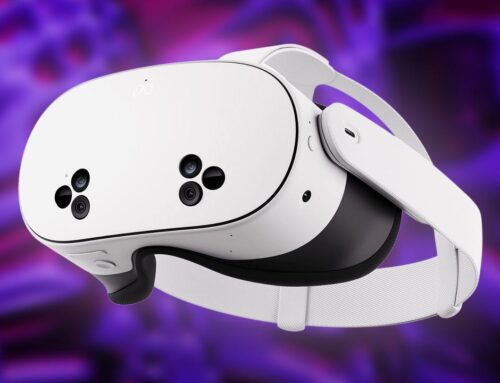Investing in West Memphis
November 23, 2025
Until recently, three major events in this century defined the West Memphis area economy: a vote by the Arkansas Legislature in 2005, a flood along the Mississippi River in 2011, and a statewide vote of the people in 2018.
In 2005, what was then known as Southland Greyhound Park was on the verge of closing. The Arkansas Legislature voted that year to allow what it called “games of skill” at Southland and Oaklawn Park in Hot Springs. Southland’s owner, Delaware North of Buffalo, N.Y., responded by spending $40 million on a facility to house electronic games. It also built an events center and added restaurants.
In 2011, a flood forced casinos at nearby Tunica, Miss., to close for months. Memphis residents began crossing the bridges to Southland rather than driving to Tunica. Most decided they liked gambling in Arkansas better than what they had experienced in Mississippi. Business at Southland has been booming ever since. In 2015, Delaware North invested another $38 million for an expansion of the gaming area and added a restaurant.
The biggest of the three events came in November 2018 when Arkansas voters approved a constitutional amendment to allow full-fledged casinos. Southland was one of four locations authorized, although only three (West Memphis, Pine Bluff, Hot Springs) were ultimately built. Shortly after that, Delaware North began work on a $320 million expansion that included a 20-story, 300-room hotel and a 113,000-square-foot casino.
I enjoy asking my fellow Arkansans this trivia question: Where is the tallest building in Arkansas outside Little Rock?
Most people say it’s in the northwest Arkansas corridor. No one gets the correct answer, which is West Memphis. Yes, it’s that 20-story hotel tower at Southland.
The final dog race in Arkansas occurred on New Year’s Eve 2022. Southland officials had decided it was time to focus entirely on the casino. Other than a column I wrote, there was little fanfare. The sport went out with a whimper. There was a time, however, when Southland was the top greyhound track in the country. I was hired as a sportswriter at the Arkansas Democrat in 1981. We had a late-night routine in the sports department. When the fax machine began running after 11 p.m., staff members would begin barking like dogs.
The evening results were coming in from Southland on that fax machine. We knew to get them typed and into the paper before the final deadline, since there was intense reader interest in those results. The 1980s saw a number of celebrity greyhounds such as Keefer, who drew big crowds to Southland. There was reserved seating and an ornate area called the Kennel Club, which featured fine dining.
A greyhound track near the Mississippi River, known by locals as “under the bridge,” was built in 1926. The formal name was Riverside Kennel Club. West Memphis was a wide-open city in those days with all-night juke joints, gambling establishments and houses of prostitution. Riverside was never rebuilt after a fire destroyed the grandstand.
A group of investors opened Southland on Sept. 7, 1956. It was the first legal gambling venue in that part of the Mid-South. Delaware North purchased Southland in the early 1970s. The rise of casino gambling in the 1990s in nearby Tunica almost spelled the end of Southland.
According to a company history: “During the 1960s, ’70s and into the ’80s, a typical Saturday night saw full parking lots and upwards of 20,000 guests. Annual wagers on greyhound races frequently exceeded $200 million. Southland employed more than 600 people. It fell on hard times in the 1990s when Mississippi approved riverboat gambling. … Nationally recognized resort casinos mushroomed around Tunica until it became the third-largest gambling destination in the country after Las Vegas and Atlantic City.
“Southland lost a significant number of guests to these casinos, seeing daily attendance drop to about 500. Annual revenues plummeted from more than $200 million in the 1980s to less than $35 million in the 1990s. More than half of Southland’s employees lost their jobs.”
By the end of 2006, following the 2005 legislative approval of “games of skill,” Southland had a 55,000-square-foot gaming room, a 65,000-square-foot racing floor, a 400-seat events center and four restaurants. The massive expansion following the 2018 election included not only the hotel but also 2,400 gaming machines, more than 50 live table games, sports betting, a 1,400-car parking garage and more restaurants.
There once were 10 casinos in the Tunica area. The expansions at Southland have put four of those out of business. The loss of greyhound racing hasn’t hurt during the past three years. Instead, it has allowed Southland employees to focus on a better customer experience with highly trained chefs, upscale amenities in the hotel and constant casino improvements.
The most important announcement so far in this century for West Memphis, though, had nothing to do with Southland. It was instead the announcement last month that Google will invest $4 billion in a data center. It will be the largest private investment in Arkansas history. The largest investment to this point was the $3 billion U.S. Steel spent on its recently completed Big River Steel II plant in south Mississippi County.
That leads to another trivia question most Arkansans can’t answer correctly: What section of the state has had the two largest private investments? The answer is northeast Arkansas. Most Arkansans would guess northwest or central Arkansas.
Google officials made a point of saying that the $4 billion is money that will be spent through the end of 2027. West Memphis Mayor Marco McClendon believes the total investment eventually could be as high as $7 billion to $10 billion as Google builds out its campus.
McClendon said the data center will employ about 300 people and that there will be almost 5,000 people working at the site at the peak of construction. While the number of permanent employees isn’t huge when compared to large manufacturing facilities, the amount of tax revenue a project of this size will produce for the city, Crittenden County and the West Memphis School District is staggering. McClendon said property taxes alone could add $120 million annually to school budgets.
In partnership with Entergy Corp., Google will cover the full energy costs associated with powering the facility.
“We’re also working together to bring solar energy and battery storage resources online,” said Laurel Brown, regional head of data center public affairs at Google. “We’ll integrate innovative load flexibility into our power contract to reduce our usage during times when the grid is constrained.”
Laura Landreaux, president and CEO of Entergy Arkansas, said the project will bring “unprecedented economic opportunity to Arkansas. … We’re powering growth and building a stronger, more vibrant future for the next generation. Google’s investment in Arkansas will stimulate economic growth in northeast Arkansas and across the state.”
“This project is more than just jobs, buildings and technology,” McClendon said. “It’s about the future of our city, opportunity, investment and education.”
Google plans to invest $25 million into a fund to implement energy efficiency initiatives in the area. McClendon said there are more announcements to come in what he calls a “community development agreement” between Google and the city. The energy efficiency program will focus on home weatherization, efficiency technology and energy workforce development.
Google also announced that the University of Arkansas and Arkansas State University will be among the first cohort of what’s known as Google AI for Education Accelerators. Students, faculty and staff will be given access at no cost to Google career certificates and AI training courses.
The project is on an 1,100-acre tract and is expected to take between 18 and 24 months to complete.
It’s far from the only project taking place in West Memphis these days. The city will be the home of the state’s second Buc-ee’s location. Arkansas’ first location is under construction just off Interstate 30 in Benton. The West Memphis location will be adjacent to Interstate 40 near Seventh Street and is set to be one of the three largest locations in the country. The 74,000-square-foot facility will have 120 gas pumps and create 225 jobs.
“They will have several managers making $100,000 or more,” McClendon said. “Almost 85,000 vehicles go through our city each day. I’ve been working for the longest to find a way to get those vehicles off the interstate in West Memphis. We need them to stop and spend money. Thanks to Buc-ee’s, we’re about to do that. It’s going to bring a lot of tax revenue to the city.”
Meanwhile, American Resort Management, a Texas-based company, is planning what will be known as Epic Resort. It will be modeled after a similar project in Grand Prairie, Texas. The 130-acre site near Southland will have a full-service hotel with 250 rooms. A later 300-room expansion is possible. There will be 10,000 square feet of meeting space along with a restaurant and bar.
An adjacent indoor water park will cover 75,000 square feet with meeting and rental spaces, food and beverage areas, dressing rooms and an outdoor wave pool. There also will be a 30,000-square-foot family entertainment center with arcade games and laser tag. Plans include space for additional restaurants, bars and retailers.
“The detention basin at Epic Resort will double as an attraction,” said Nick Coulter, marketing and business development director for the city of West Memphis. “It will include a fountain system with choreographed water jets, colored lights and music. The fountain will operate daily with regular show times in the evenings. The design allows for synchronized patterns and seasonal themes.
“Design and planning are done. We expect infrastructure and site prep to start in the first quarter of 2026 with vertical construction starting in late 2026. The project opening is scheduled for late 2028. The total investment will be about $260 million.”
Even before the tax money starts flowing in from Google, Buc-ee’s and Epic Resort, the city is taking advantage of the Southland tax windfall. Southland now has 1,250 employees, and business is good.
“You don’t see many gaming operations that have as close a relationship as Southland has with the city of West Memphis,” Coulter said. “It’s wonderful.”
New police and fire department headquarters are being built on Broadway. A 40,000-square-foot recreation center is being planned with a competition swimming pool, six basketball courts and facilities for tennis, volleyball and pickleball.
A $12 million expansion and revitalization of the Tilden Rodgers Sports Complex is nearing completion. Upgrades include seven new baseball and softball fields with professional-grade artificial turf and dugouts; four tennis/pickleball courts; sand volleyball courts; two basketball courts; soccer fields; and kickball fields.
“Family-friendly additions include splash pads, paddleboats for lake use, pier and boardwalk bridges for fishing, and playgrounds,” Coulter said. “Park amenities are also being upgraded with additional concession areas and restrooms, improved sports lighting, gathering plazas, additional parking with bus spaces and a dog park.
“We’re also building a nine-acre BMX pump track at the Big River Trailhead. We’re going to purchase a golf course to make golf more affordable and accessible for people. There are so many things going on.”
Additional tax revenue will flow to the city when construction begins on a bridge over the Mississippi River. The new Interstate 55 bridge will be named Kings Crossing in honor of Dr. Martin Luther King Jr., B.B. King and Elvis Presley (the king of rock ‘n’ roll). The $800 million project will bring hundreds of construction workers into West Memphis to spend money. The design phase has begun and construction is expected to begin in 2027. The project is scheduled to be completed in 2031.

(Democrat-Gazette file photo)

(Democrat-Gazette file photo)
Search
RECENT PRESS RELEASES
Related Post


